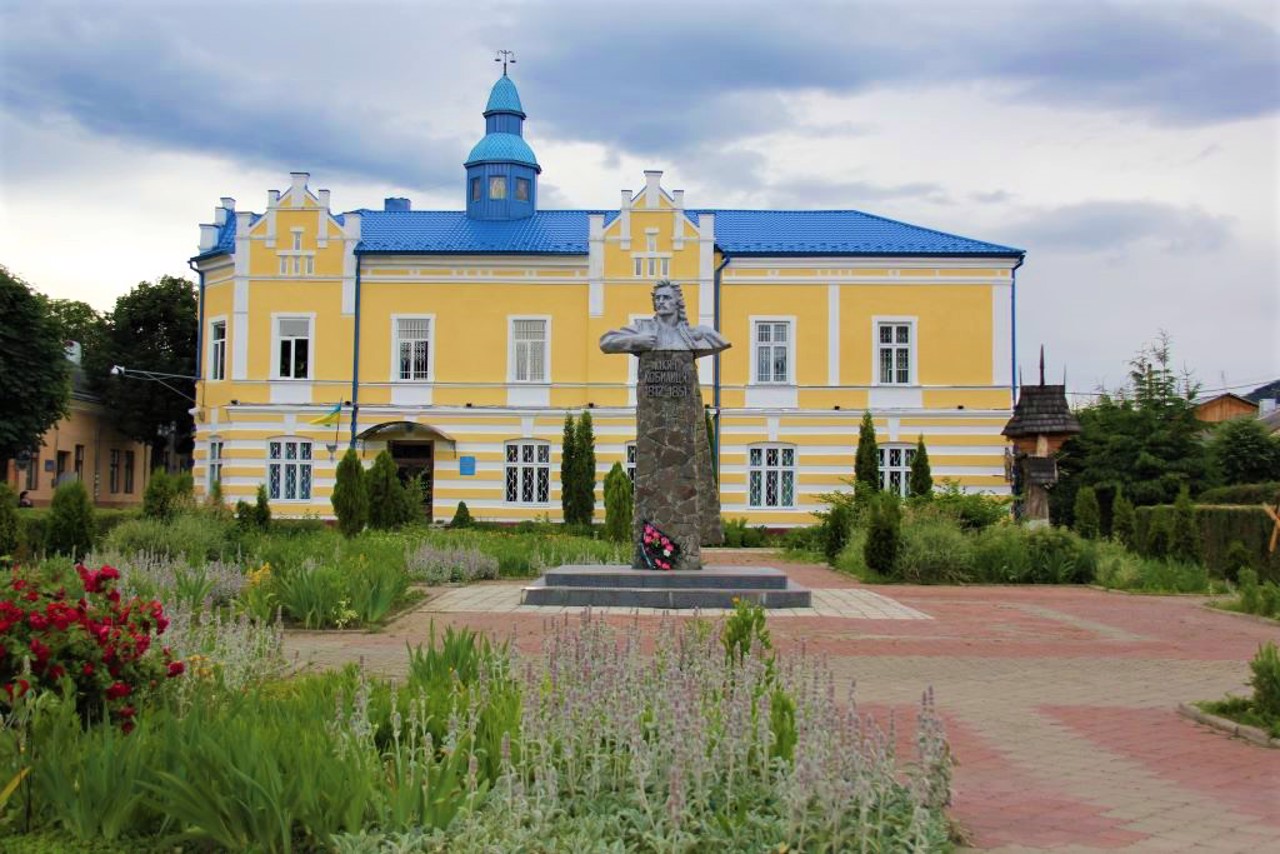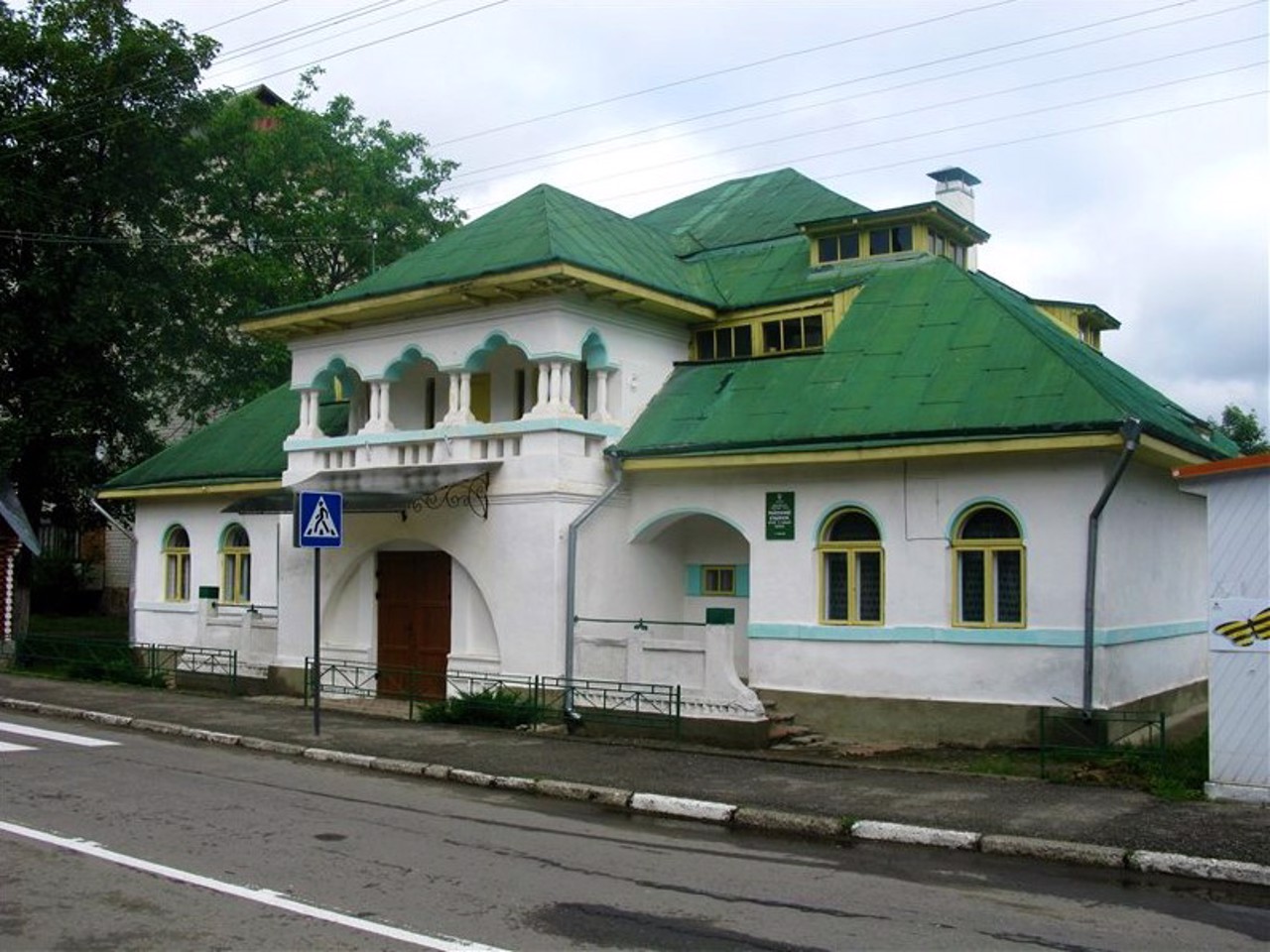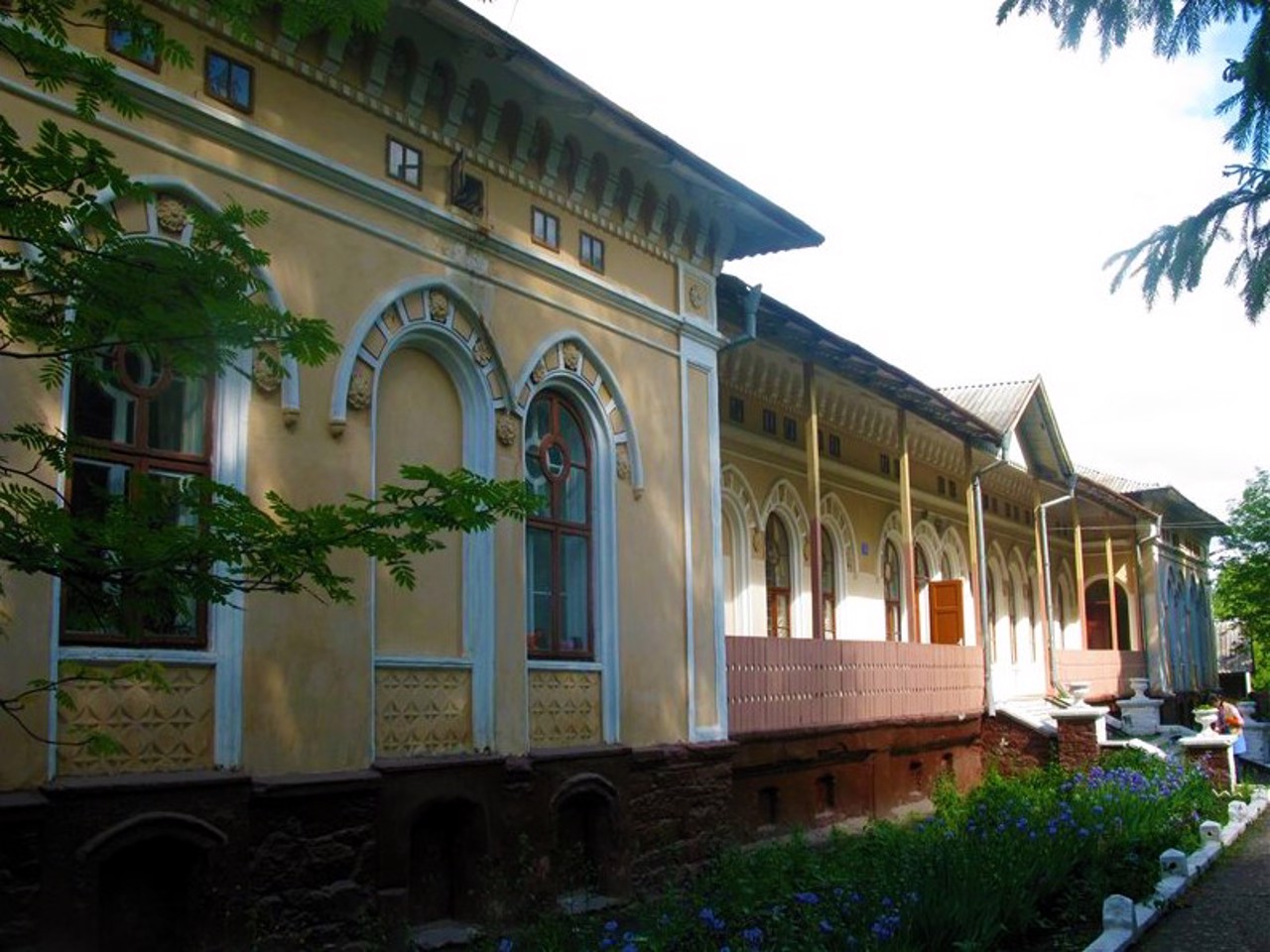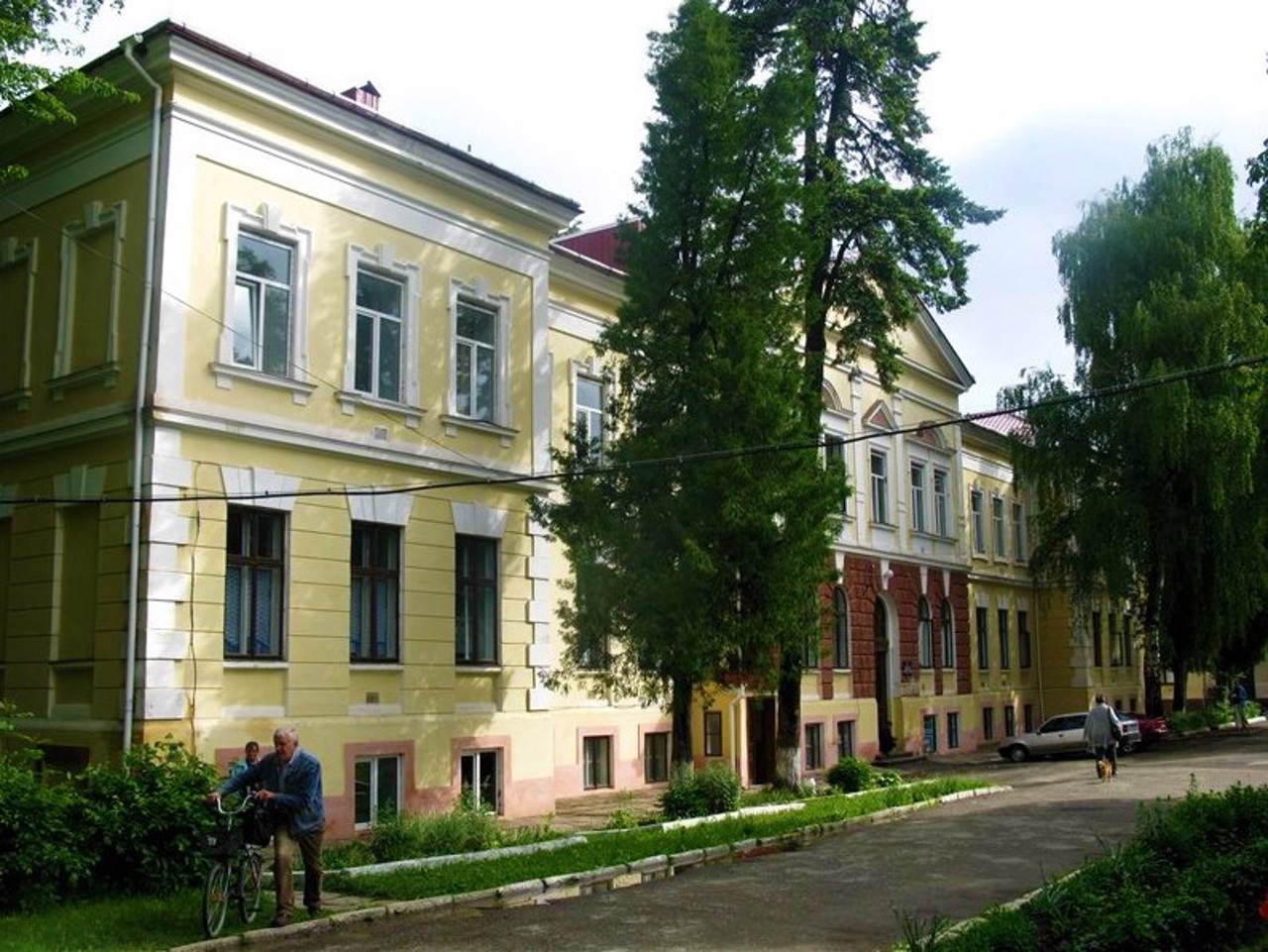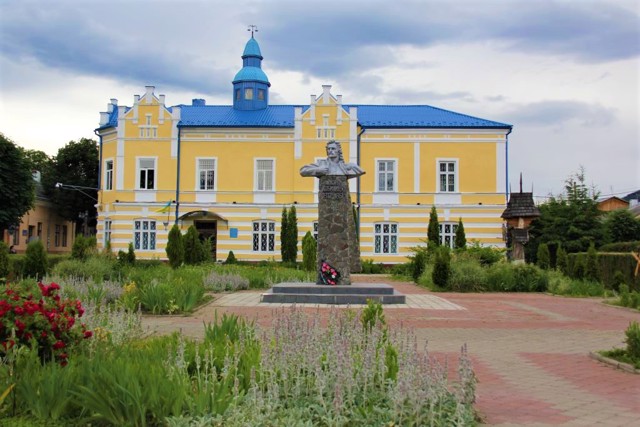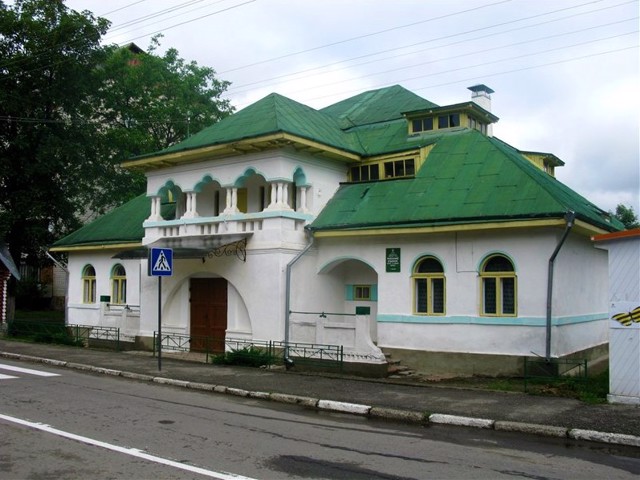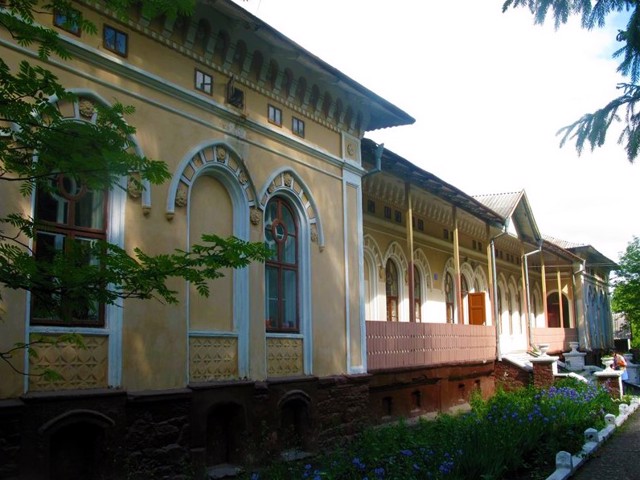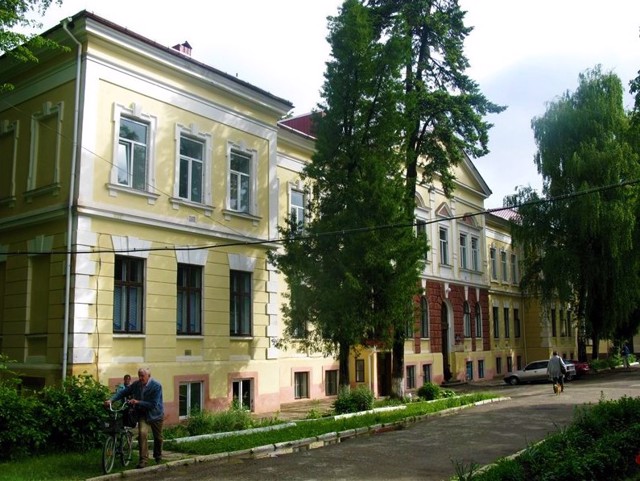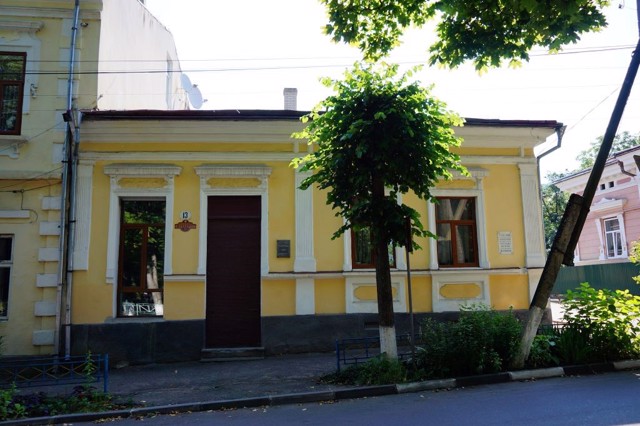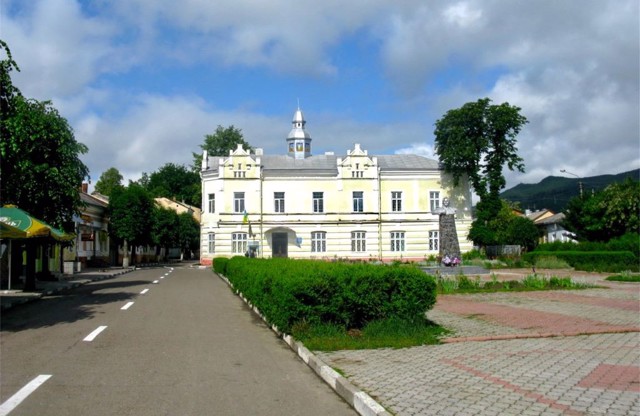Functional temporarily unavailable
Vyzhnytsia
Travel guide online Vyzhnytsia
General information about Vyzhnytsia
The city of Vyzhnytsia is located on the right bank of the Cheremosh River.
It arose in the 15th century as a trading settlement. It is known for folk crafts and handicrafts.
Center of the Vyzhnytsia National Nature Park (the administration is located in Berehomet). Here begins a walking route along the picturesque paths of Oleksa Dovbush, who led a peasant uprising in these places in the middle of the 17th century. You can visit Dovbush Caves, Dovbush Rock, Kamyana Bahachka and other natural attractions.
On the outskirts of the city there is a wooden church of Saint Dimitreus of the 19th century. In the center - Saint Nicolas Church, Peter and Paul Church, synagogue, public and administrative buil ...
The city of Vyzhnytsia is located on the right bank of the Cheremosh River.
It arose in the 15th century as a trading settlement. It is known for folk crafts and handicrafts.
Center of the Vyzhnytsia National Nature Park (the administration is located in Berehomet). Here begins a walking route along the picturesque paths of Oleksa Dovbush, who led a peasant uprising in these places in the middle of the 17th century. You can visit Dovbush Caves, Dovbush Rock, Kamyana Bahachka and other natural attractions.
On the outskirts of the city there is a wooden church of Saint Dimitreus of the 19th century. In the center - Saint Nicolas Church, Peter and Paul Church, synagogue, public and administrative buildings of the 19th century.
The city is famous as one of the main centers of folk art of the Carpathians. Since 1905, the Vyzhnytsia College of Applied Arts, founded by the famous wood carver Vasyl Shkriblyak, has been operating here, and the Faculty of Chernivtsi University has also been opened here.
Місто Вижниця розташоване на правому березі річки Черемош.
Виникло в XV столітті як торгове поселення. Відоме народними промислами та ремеслами.
Центр Вижницького національного природного парку (адміністрація розташована в Берегометі). Тут починається піший маршрут мальовничими стежками Олекси Довбуша, який керував в цих місцях селянським повстанням в середині XVII сторіччя. Можна відвідати Печери Довбуша, Скелю Довбуша, Кам'яну Багачку та інші природні пам'ятки.
На околиці міста знаходиться дерев'яна Дмитрівська церква XIX століття. У центрі - Миколаївська церква, Петропавлівський костел, синагога, громадські та адміністративні будівлі ХІХ століття.
Місто славиться як один з голо ...
Місто Вижниця розташоване на правому березі річки Черемош.
Виникло в XV столітті як торгове поселення. Відоме народними промислами та ремеслами.
Центр Вижницького національного природного парку (адміністрація розташована в Берегометі). Тут починається піший маршрут мальовничими стежками Олекси Довбуша, який керував в цих місцях селянським повстанням в середині XVII сторіччя. Можна відвідати Печери Довбуша, Скелю Довбуша, Кам'яну Багачку та інші природні пам'ятки.
На околиці міста знаходиться дерев'яна Дмитрівська церква XIX століття. У центрі - Миколаївська церква, Петропавлівський костел, синагога, громадські та адміністративні будівлі ХІХ століття.
Місто славиться як один з головних центрів народної творчості Карпат. З 1905 року тут діє Вижницький коледж прикладного мистецтва, заснований знаменитим різьбярем по дереву Василем Шкрібляком, а також відкрито факультет Чернівецького університету.
Сплануй своє перебування у Vyzhnytsia
What to see and where to go in Vyzhnytsia
Tourist attractions and museums of Vyzhnytsia
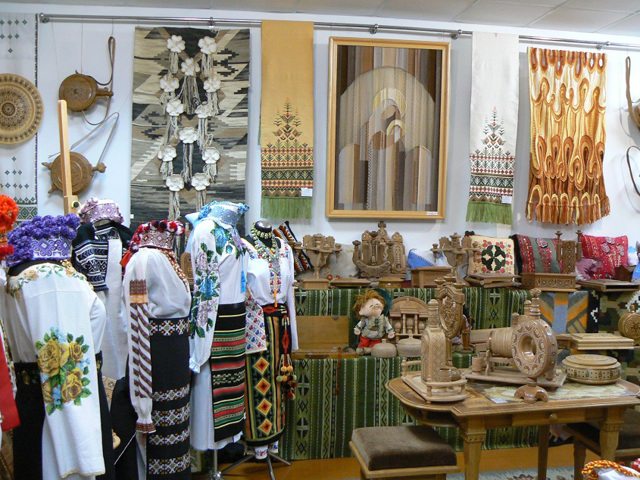
Vyzhnytsia Art and Design College named after Vasyl Shkriblyak Museum
Museum / gallery
The museum of Vyzhnytsia College of Arts and Design named after Vasyl Shkriblyak was opened for the 60th anniversary of the educational institution, which bears the name of the famous wood carver, who taught here since 1905.
The exposition includes 23,000 exhibits. The best graduation works of college graduates are presented: woodworking, jewelry, blacksmithing, artistic weaving, embroidery, clothing modeling, and more.
Some works can be purchased.
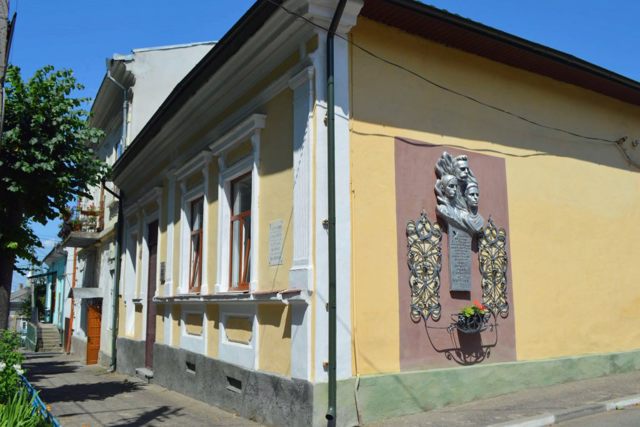
Anna Moskva-Holota House
Palace / manor
The house of Anna Moskva-Holota, the wife of Mykhaylo Moskva, a lawyer and member of the Austrian Parliament, was built in Vyzhnytsia in the second half of the 19th century.
Anna Moskva-Holota was one of the most educated women of Bukovyna, well versed in politics and culture, knew several foreign languages, knew how to play the piano, graduated from a teachers' gymnasium, was hardened in the fight for women's rights, for the will of Ukraine. Extremely energetic and patriotic, she renovated the People's House in Vyzhnytsia with her own funds (now it is located on the territory of the Vyzhnytsia boarding school) and became the last head of the "Prosvita" (Enlightenment) society in the city.
Moskva's house was a cozy place for rest, peace of mind, communication with creative people over a cup of coffee and rum, those who wanted could use the family's library of rare books. Moskva's house, which the local intelligentsia then called among themselves the "House under the green lantern", in the times of Austria-Hungary became a kind of House of creativity, where cultural figures, writers and scientists were guests. Ivan Franko stopped in Moscow several times - for the first time in 1884 during his expedition to collect materials about the legendary oprysh Oleksa Dovbush and the leader of the peasant uprising Lukyan Kobylytsa. In the summer of 1901, Lesya Ukrayinka, together with her husband, the ethnographer Klyment Kvitka, also stayed at the house of Anna Moskva-Holota, with whom she was friends until her death. At the beginning of the 20th century, the writers Mykhaylo Kotsyubynskyi, Olha Kobylyanska, Hnat Hotkevych, Yuriy Fedkovych and many other prominent Ukrainians visited here.
On the facade of the Moskva`s house, the old sign of the shop, which was kept by the family, has been preserved to this day.
In honor of the 150th anniversary of the birth of Ivan Franko, on the initiative of the creative intelligentsia and the "Prosvita" society, a bas-relief to Ivan Franko, Lesya Ukrayinka and Olha Kobylyanska was unveiled on the building. The author of the bas-relief is the sculptor Volodymyr Rymar.
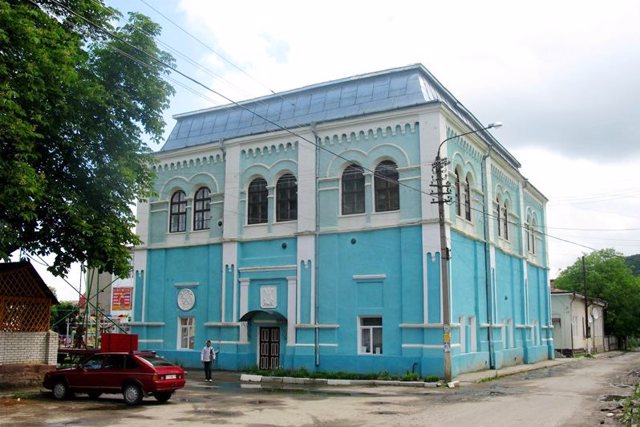
Main Synagogue
Temple
The massive three-story building of the Main Synagogue is one of the architectural landmarks of the central square of Vyzhnytsia.
It was one of the 11 Jewish sanctuaries that existed in the city during the Austrian rule.
During the First World War, the temple burned down. In the 1960s, the building was reconstructed as a district cultural center. It was here that the artistic career of the famous singer Nazariy Yaremchuk, whose childhood and youth were spent in Vyzhnytsia, began.
Today, the turquoise building of the former synagogue is a city house of folk creativity and leisure.
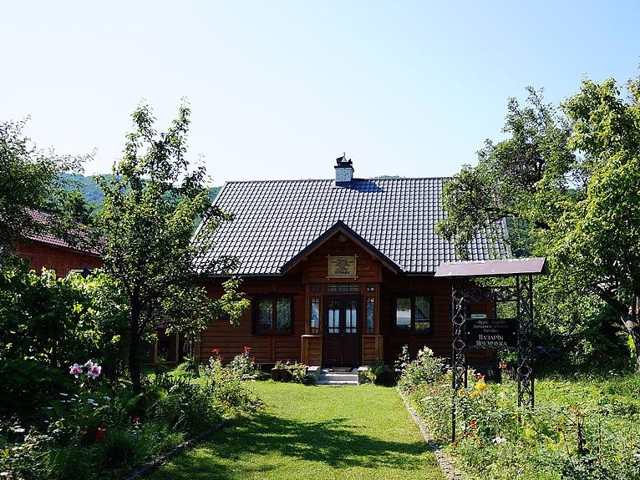
Nazariy Yaremchuk Memorial Museum-Manor
Palace / manor , Museum / gallery
The manor-museum of the People's Artist of Ukraine Nazariy Yaremchuk is located in Vyzhnytsia in the village of Rivne.
The small "spruce house" in which the famous singer spent his childhood and youth was turned into a museum by his sister Kateryna.
In the museum, you can see family heirlooms of the Yaremchuk family, stage costumes, photos and personal letters of the maestro, magazine and newspaper articles collected by friends, fellow students, teachers and musicians, which tell about the life path of Nazariy Yaremchuk.
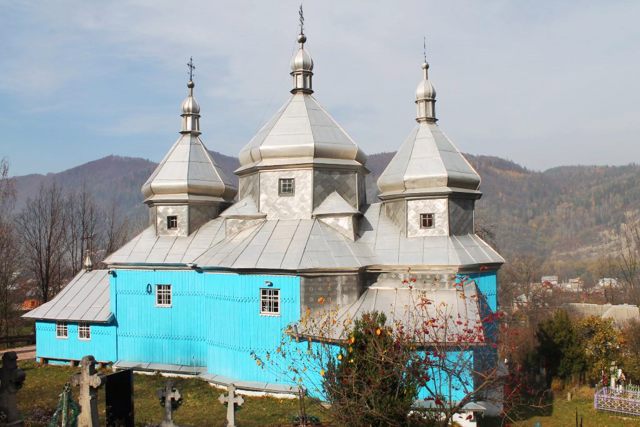
Saint Demetrius of Thessalonica Church
Temple , Architecture
The wooden church of Saint Demetrius of Thessalonica is located on the western outskirts of Vyzhnytsia, in the village of Rivnya.
Saint Demetrius Church was built in 1883. It resembles the earlier wooden temples of the Hutsul region found in the Ivano-Frankivsk region, but differs from them in the absence of a covered gallery and the significant displacement of the side extensions of the nave.
The Saint Demetrius Church is an outstanding monument of wooden Hutsul architecture of local importance.
Reviews Vyzhnytsia
Geographical information about Vyzhnytsia
| {{itemKey}} | {{itemValue}} |
|---|---|
| Region |
Chernivtsi |
